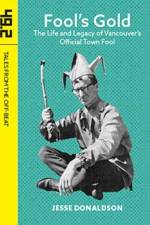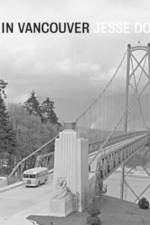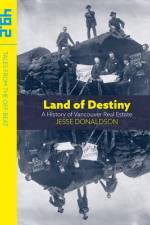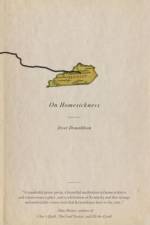av Jesse Donaldson
411
Literary Nonfiction. Canadian History. Photography. Finalist, Bill Duthie Booksellers' Choice Award (BC Book Prizes). Runaway bestseller, in its second printing mere days after its release! BC Books for Everybody selection. Recommended by Brian Lynch of the Georgia Straight: "Glossy Books for Holiday Giving." Recommended by Peter Darbyshire for Non-Fiction of 2014 (on Corey Redekop's blog). The City of Vancouver has been through a lot in its first 125 years. It's a city that has played host to the likes of Mark Twain, Alice Cooper, Elvis Presley, Winston Churchill, The Beatles, Louis Armstrong, Howard Hughes, Expo '86, and the 2010 Olympic Winter Games. It's the birthplace of Canada's first female member of the legislative assembly, the country's first (and largest) clothing-optional beach, and the reason for the first nationwide prohibition legislation. It was the final resting place of Errol Flynn, and the city where two of his genital warts were briefly (and posthumously) kidnapped. It has been a hotbed of political activism, technological innovation, and bitter racial tension. It is the site of the West Coast's first electric light, and the nation's first female police officers, as well as home to world-renowned actors, deadly snipers, twisted serial killers, UFOs, the founders of Greenpeace, an official Town Fool, and even the headquarters for the Canadian Ku Klux Klan. It's a city on a journey; a journey that has taken it from being an unrefined, out-of-the- way, frontier logging village, to its current position as one of the most livable cities in the world. THIS DAY IN VANCOUVER is the story of that 125- year journey, one day at a time. Adapted from The Dependent magazine's highly successful online column of the same name, and drawn from more than 13 months of research, each of the book's pages is dedicated to a day of the calendar year, featuring a noteworthy event, historical curiosity, or ridiculous headline from Vancouver's past. Seeking to capitalize on renewed interest in the city's history an interest fostered by recent 125th anniversary celebrations each entry seeks to relate the day's events to the history and development of the city as a whole, thus providing not only a historical snapshot, but a broader understanding of many of the individuals and locations that have contributed to the creation of Vancouver's unique cultural identity. In addition, many of the entries are accompanied by a relevant full-sized historical photograph on the facing page, selected from the thousands of images available in the city archives. "Jesse Donaldson is one of the most entertaining non-fiction writers working in the city today. THIS DAY, his first book, shines a light on the historical and contemporary events that shaped Vancouver for each of the 365 days of the year. From the moment John 'Gassy Jack' Deighton arrived on the shores of the Burrard Inlet to eventually and 'inadvertently contribute to the beginnings of the city of Vancouver, ' to that one time in 1925 a terrifying man in Ku Klux Klan regalia stood proudly in front of the mansion that would later become Canuck Place, the book is studded with gems. Donaldson hilariously captures undersung moments in Vancouver history and reminds us of the enduring and endearing humanity that runs across decades." The Tyee "All of the stories are reminders that we should never forget the past, but also that the past is not as far back as wed sometimes like to think." Westender "Donaldson's collection covers 356 days' worth of events (sorry, no accommodation for leap years) and is driven by what dominated talk around the figurative watercooler. If it made it to the front page, it had a good chance of making it into THIS DAY. Which is fair enough. These were the issues that stirred public interest, at least on the local level, and we certainly get a sense of what newspaper editors felt would excite their readership and expand their sales. Whether Vancouverites obligingly joined in with a chorus of applause or jeers is seldom stated. That's not the point. Stories like these, when they happen, become the people's property and shape their sense of the city and their place within it." John Belshaw, author and historian, in a review for BC Studies"





